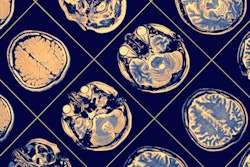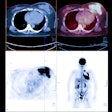An April 18 opinion piece in the New York Times proposes that there is an association between a women's menopausal status and her chance of developing Alzheimer's disease.
The article was written by Lisa Mosconi, PhD, associate director of the Alzheimer's Prevention Clinic at Weill Cornell Medical College/NewYork-Presbyterian Hospital. Mosconi was the lead author of research published last year on how gender and endocrine levels may play a role in Alzheimer's.
"Today we understand that Alzheimer's has compound causes, such as age, genetics, high blood pressure, and aspects of lifestyle, including diet and exercise. ... What we are only beginning to understand is why women are more susceptible. What factors differentiate women from men, specifically as we reach middle age?" she wrote in the New York Times piece.
In a study published in September 2017, Mosconi and colleagues used MRI, FDG-PET, and PET with Pittsburgh Compound B (PiB) to image healthy women between the ages of 40 and 60. Among other factors, they measured neural activity and evidence of beta-amyloid plaques, which are associated with the onset of Alzheimer's.
They found that both peri- and postmenopausal women had more beta-amyloid plaques and less brain activity than premenopausal women, Mosconi wrote. In addition, the differences were even more pronounced in those two groups when they were compared with age-matched healthy men, she added.




















